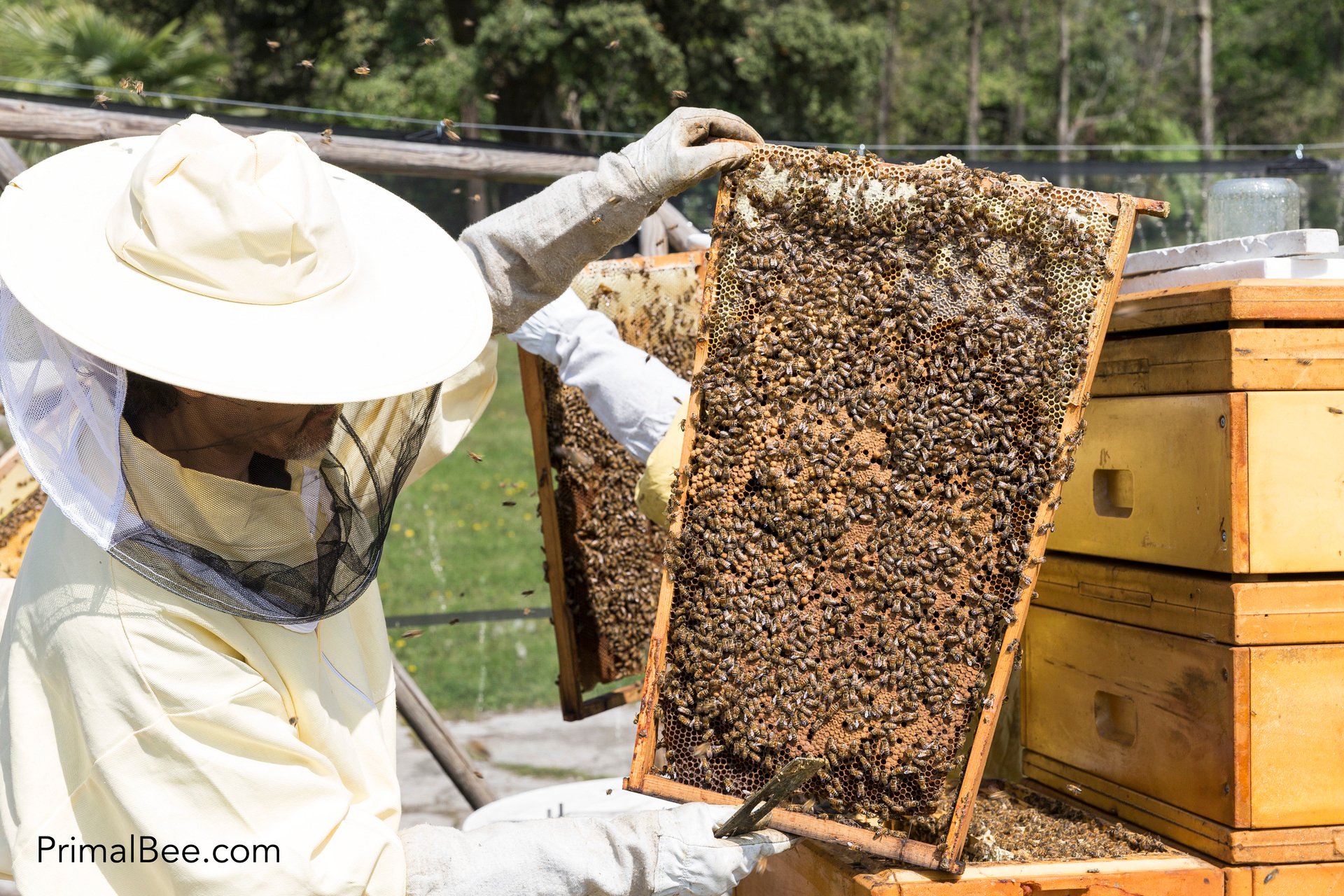

The Hive Mind
The only newsletter that helps beekeepers understand why their colonies struggle and how to fix it.
Buzzing into your inbox twice monthly.

Every two weeks, we'll share:
🔍
Bee science that actually makes sense
(no PhD required)
🌡️
Thermodynamic insights
that explain why most conventional advice fails
🐝
Real stories
from beekeepers just like you
🍯
Seasonal tips
that work with bee biology, not against it
🌎
Industry context
that connects our approach to wider beekeeping trends
😂
A few terrible bee puns
(sorry not sorry)

Ever notice how beekeeping advice seems to contradict itself?
Feed sugar syrup.
No, don't feed sugar syrup.
Treat for mites.
No, let the bees develop resistance.
It’s maddening!
Here's what nobody's talking about: Most colony problems stem from a single underlying issue – energy inefficiency in conventional hives.
This isn't just another beekeeping newsletter.
We're Alex and Gianmario – engineers, beekeepers, and honestly, a bit obsessed with bee thermodynamics.
After watching our own colonies collapse year after year, we realized something: bees are fighting an impossible battle in conventional hives.
So we engineered a solution that works with bee biology instead of against it.
And now we're sharing everything we've learned along the way.


What makes this newsletter different?
The Hive Mind connects the dots between colony temperature regulation, brood development, honey production, and disease resistance – relationships that traditional beekeeping approaches miss entirely.
Each issue becomes part of a growing, searchable library of thermodynamic beekeeping knowledge, organized by season and challenge.
Whether you're dealing with spring buildup, summer dearth, or winter preparation, you'll have practical, science-backed solutions at your fingertips year after year.
As the industry evolves with new research and changing environmental conditions, we provide the context you need to distinguish between passing fads and fundamental principles that actually work.


Why 90°F-95°F (32°C-35°C) is the magic number for colony success
How temperature fluctuations sabotage bee immune systems
The hidden energy costs draining your colonies' resources
Real-world success stories from beekeepers who've made the switch
Seasonal strategies that work with nature, not against it


